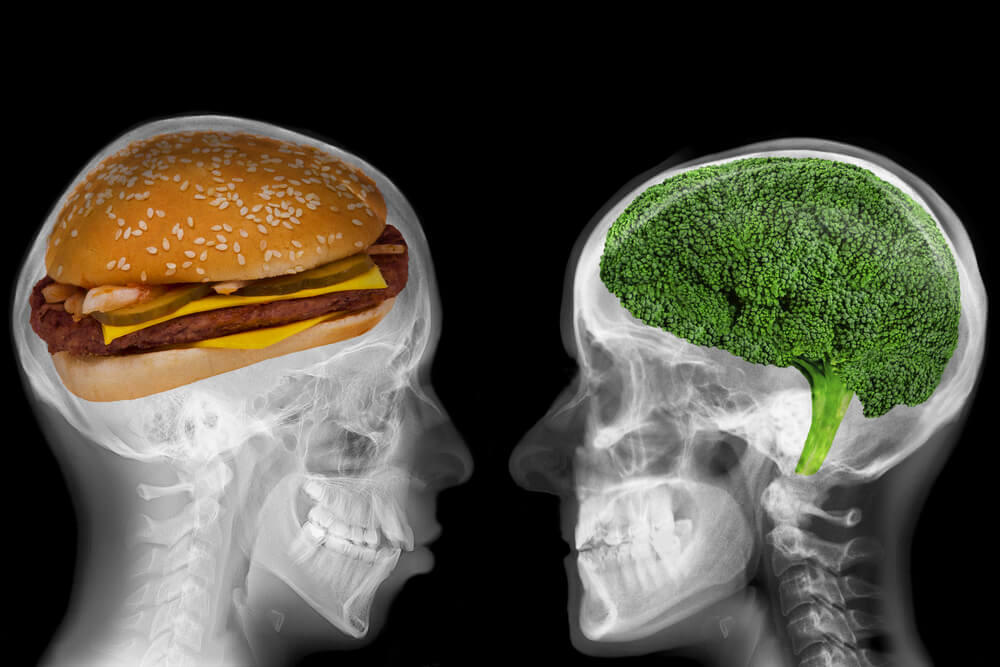Food is a fantastic opportunity to take care of our health, but we need to understand that some foods are potentially harmful. Today we will examine the effects of junk food on the brain.
Far from feeding and feeding us, this type of food impairs the functioning of our body, in addition, science has recently discovered that foods high in calories and low in nutrients negatively affect the functioning of our minds.
- Brain.
- Behavior and Immunity published a study at the University of New South Wales.
- Australia.
- In which researchers found that a diet high in sugars and fats impairs the brain’s cognitive ability.
- This effect of junk food on the brain occurs even in the short term.
The researchers noted that childhood is a critical moment in this regard, i. e. if a diet is low in essential nutrients in the early years of life, its effects will be more severe.
“The food you eat may be the most potent form of medicine or the slowest form of poison. “Ann Wigmore?
The study from the University of New South Wales showed that, in fact, junk food has harmful effects on the brain. To demonstrate this, an experiment was conducted with two groups of mice.
One of the groups was fed high-calorie, nutrient-poor foods. In particular, many foods high in sugar and saturated fats. The other group was given a healthy diet, but was allowed to consume sugary water sporadically. The latter simulated a soda.
The result surprised scientists. Just one week after the start of the experiment, the first group of mice showed significant deterioration of the memory-related area of the brain.
The most disconcerting thing is that the second group also showed a deterioration almost as severe as the first group.
The evidence for the harmful effects of junk food on the brain doesn’t end there. Another study, published in the journal Cell Metabolism, shows that a group of American scientists reached the same conclusion in a different way.
These researchers started from the idea that cells in the brain’s immune system, also called microglia, are ignited with the consumption of calorie-rich foods that contain few nutrients, and through their research they have been able to detect that when this happens, the feeling of hunger increases.
To reach this conclusion they also used a group of mice, which in this case caused artificial inflammation of the microglia, which led the mice to eat a third more than before and increase their weight on average four times.
This demonstrates other effects of junk food on the brain, which eventually affect the whole body.
The statement: Are we what we eat? It is the livelihood of science, however, if what we consume influences our mental health, we have a great opportunity to be the architects of our own health, isn’t it wonderful?
Today we know that nutrient-poor and high-calorie foods generate physiological patterns similar to those of addiction, and by increasing consumption of this type of food, it also seems to increase the desire we have for them.
Thus, as with all addictions, the temptation to exchange immediate pleasure for long-term well-being becomes difficult.
Galeno and the first doctors in history were convinced that food and good health went hand in hand, so much so that one of Hippocrates’ principles was: “Let your medicine be your food and your food your medicine. “
When we eat, care for, or neglect our mental health. Just as we have evidence of the negative effects of junk food on the brain, we can also get positive effects with other types of foods.
It’s not that hard. Simply put certain foods into our daily diet, not necessarily in large quantities. Eating a handful of nuts or other nuts a day is a good way to satisfy your appetite and take care of your brain’s health.
Fish, as well as blueberries, oats, yogurt, chocolate, avocado and green foods are also beautiful, if you don’t like these foods, eat a small portion every day, so your brain will thank you.

